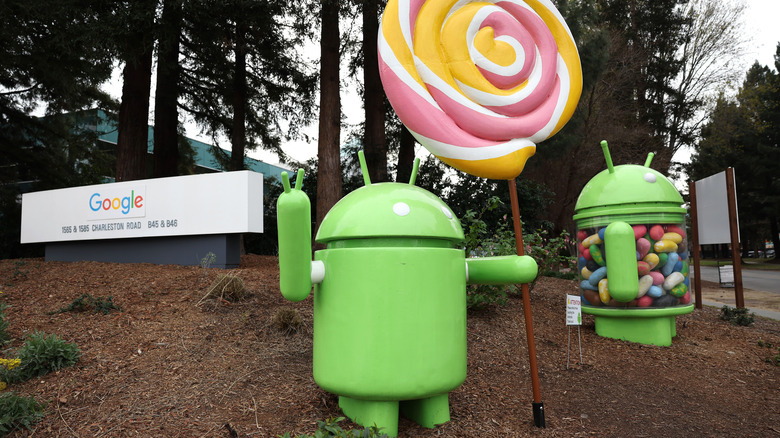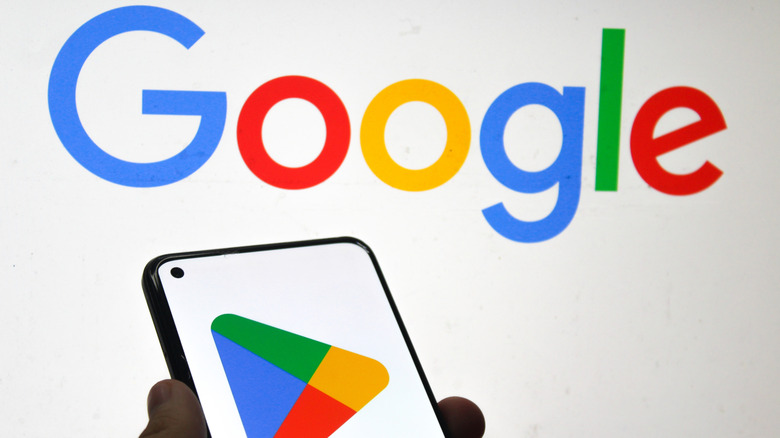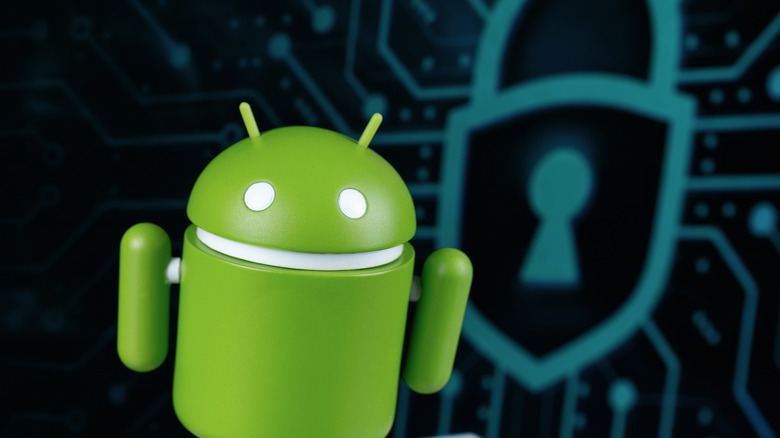Google Is Restricting One Of Android's Most Important Features, And Users Are Outraged
The competition between Apple and Google over the mobile landscape has always been as much about philosophy as it has market share. Apple's iOS is restricted to the devices it builds, and customization on those devices is limited. This allows the iPhone to feel like a carefully curated experience. Android, meanwhile, has taken a radically different approach. The majority of its code is open-source, and anyone who so desires can tinker with it. If iOS is a guided museum tour where touching the art is forbidden, Android is like a science museum with interactive exhibits. But all of that is about to change.
At the core of Android's customization is the ability to download and install apps from anywhere on the internet. This is commonly known as side-loading, which is a strange way of describing how things always worked before the Apple App Store changed how we get software. It's not normal for a company to restrict what you can do with their product after you've purchased it, but Apple turned aftermarket controls into a multibillion-dollar business. Some call this approach a "walled garden," but regulators suing Apple employ a more direct accusation: illegal monopolization.
How does this relate to Android? Well, it seems Google is taking one step closer to copying its rival. In August, Suzanne Frey, VP of Product at Google, published an article on the Android Developers Blog announcing upcoming restrictions to apps from outside the Play Store. The changes will place new restrictions on developers and may drastically reduce the number of apps users have access to. Here's what Google is planning, and why users are outraged.
Sideloading, core to Android's identity, is getting a controversial overhaul
In a blog post on the Android Developers Blog, Google product head Suzanne Frey outlined new requirements for apps installed on Android devices. Users will no longer be able to install apps unless they are digitally signed by developers. App signatures tell users who developed an app, and they are a common security feature on other operating systems, such as Windows. It's well known to savvy computer users that unsigned apps have a higher potential to be dangerous, and that you should install them at your own risk. However, you can still install them, and that's where Android's implementation will differ.
According to Google, this is not a big deal. The company compares developer verification to handing over your ID at the airport, framing it as a common-sense security measure to prevent malware. It's true that Android's open approach to software has led to security risks that simply aren't present on iOS, but that's a tradeoff users have always made freely and enthusiastically. Moreover, sideloading apps on Android requires jumping through hoops, turning off settings, and acknowledging the dangers before doing so. It isn't something a novice user is likely to do by accident.
Google says it won't check the contents of an app, but it will force developers to verify their identities, using Google tools to do so, whether or not the app is listed in the Play Store. Unfortunately for Google, many of the users affected by this are among those most likely to follow tech news, and backlash was swift. Consumer advocates and Android enthusiasts alike expressed outrage, citing concerns over privacy and user choice. Here's what they've been saying.
Android will block unverified apps, sparking outrage over choice and privacy
A furious response from users and consumer activists erupted in the wake of Google's announcement that Android developers will soon be required to verify their identity and sign their apps. It didn't help that the announcement came mere weeks after the United Kingdom sent shockwaves across the internet with the implementation of its 2023 Online Safety Act, which itself went into effect as payment processors were forcing the removal of potentially offensive video games from Steam and other popular online storefronts. In a remarkably short span of time, users witnessed financial juggernauts, a major world government, and a powerful tech giant exert seemingly unchecked power over the things we access online. It was a rude awakening for many, and the confluence of events may have caused more backlash than Google anticipated.
"I don't use Android because I believe it is operationally and functionally better [than iOS]," said Louis Rossman, a YouTuber and consumer rights advocate, in response to the announcement. "I use it because it gives me freedom." Or, as user u/gsdev succinctly put it in a Reddit comment, "If you can't do what you want with your device, it's not your device, it's theirs." Beyond the issue of choice, some have raised privacy concerns. It's unclear to what extent Google will track developers' identities or user app installs, but the verification requirements could have a chilling effect on smaller developers, as well as those who make software such as game emulators that sit in a legal grey area. Most of all, though, one user sentiment keeps cropping up in every discussion: these changes do away with one more reason why people prefer Android over iPhone.


